I hope everyone is keeping well! It’s the coldest morning of the year so far, and I’m hiding in my bedroom with a jumper and thermal socks to keep warm.
We’re onto the hidden gem segment of this year’s GOTY event. This is the episode where I recommend some of the…more quirky games released this year. These might be titles that have flown under the radar, performed less than expected, or just have a lot of rough edges. It’s interesting how often I gravitate toward these games, but the janky ones sometimes have the most heart.
I’ve always gone by the “no game is perfect” philosophy. Some of the games I’m talking about today have significant flaws or are more of a pre-alpha than a complete game, but that’s okay. I’d rather play something enjoyable, flaws and all, than a soulless, complete experience. You get far in this industry with some ambition. Like every other category this year, so many games could fit this list that I could spend hours chatting about. I’m obsessed.
Let’s begin!
Deus Novum
Kicking off this year’s Hidden Gems list is a game attempting to recreate a legend in PC gaming. Black and White might be one of the biggest, most ambitious titles ever devised by humankind. After a long and challenging development during Lionhead Studio’s conception, it hit the world in 2001. It might have still suffered from the eternal bullshit Peter Molyneux came out with, and it was still a bad experience, but there hasn’t been anything like Black and White before and since. No wonder so many people want a reboot!
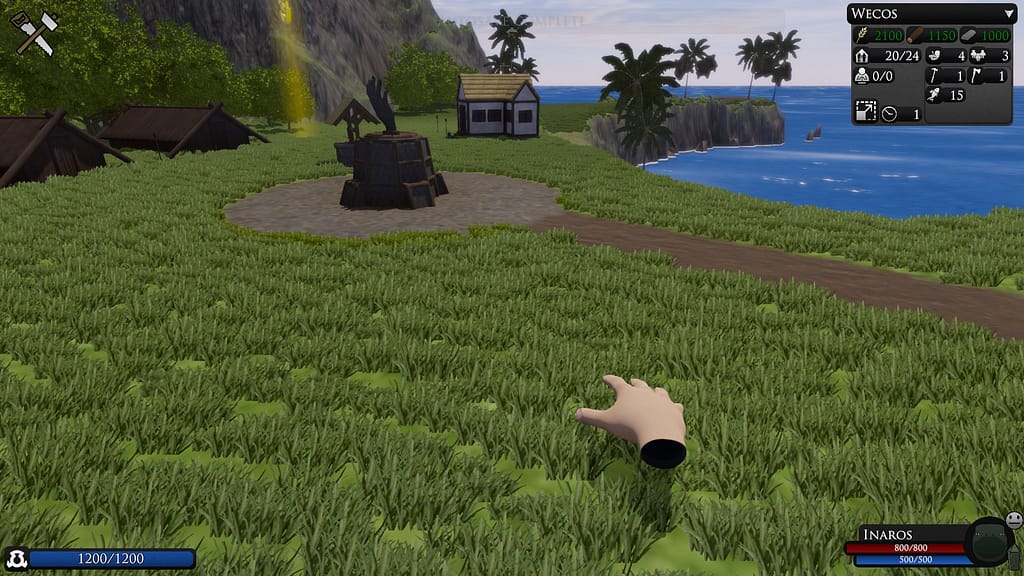
The god game genre, once a giant in the AAA industry, is sadly a thing of the past due to several commercial failures in the mid-2000s; some brave indie developers still try to create something big.
Deus Novum is a challenging experience at times, but there is no other game like this on the market. The only way to play the Black and White series is by paying extortionate amounts online for disk copies or locating it elsewhere on abandonware sites. Deus Novum is the closest thing. For that reason alone, I was driven to try the game out. Marketing games is challenging, and it was only because of a random post on Reddit by the developer that I discovered it.
The above link describes my thoughts on the game in more detail, but I’ll make a summary today. It’s rough around the edges and has its fair share of bugs and glitches. It requires a beefy computer to work to its full extent, but Tyler has been hard at work all year working on the game, adding new content, and fixing the issues. What I like about it is that while it takes many aspects from Lionhead’s Black and White series, it also tries to do its own thing. The modular city-building mechanics from the sequel, the creature learning mechanics, world physics, and a progression system to unlock new powers and abilities.
The game is in very early development. Unfortunately, I had to cut it from my Best of Early Access list because there have just been so many great candidates this year that I had to make painful choices. It’s a buggy game and challenging to run well, and sadly it made my Steam Deck regurgitate when I tried to play it on that. That’s a shame because it could be a fantastic portable game with some improvements. It might be messy, but how could I not love it? Deus Novum has so much potential, and it’s not as if anyone else is making a game like this.
I have a ton of respect for this guy because it’s not easy making any game, let alone a successor to a cult classic! So for that reason alone, it deserves some attention, but while the meat of Deus Novum is a little undercooked, the skeleton is enjoyable even in this early state.
I’m still talking about food. Michael, get a damn sandwich.
Sapiens
There’s something about colony simulator games that gets me. Whether it’s building up a little empire with hordes of little people or lording over them from above like a dark god, I always return to them when I need to unwind. I might have a slight god complex. But, I swear, I’m normal.
It’s rare to see games set in the prehistoric era. Dawn of Man was one example, a game I enjoyed despite issues with long-term balance. Sapiens launched this summer, and out of all the colony sim and city-builders I’ve played in 2022, it might be the most ambitious. Dave Frampton is the sole developer of Sapiens, and I got the chance to interview him earlier this year: click on the link down below to read more:
Sapiens is rather glacial in its pacing. So much so that I understand if people don’t like that. However, it’s the Terra Invicta of colony sims, so if you don’t like that, this is a challenging game to recommend. I rather enjoy the pacing. Set in the dawn of man, the player takes a tribe to salvation and greatness and a journey of self-discovery. While it’s a challenging experience, the slow gameplay made it oddly relaxing.
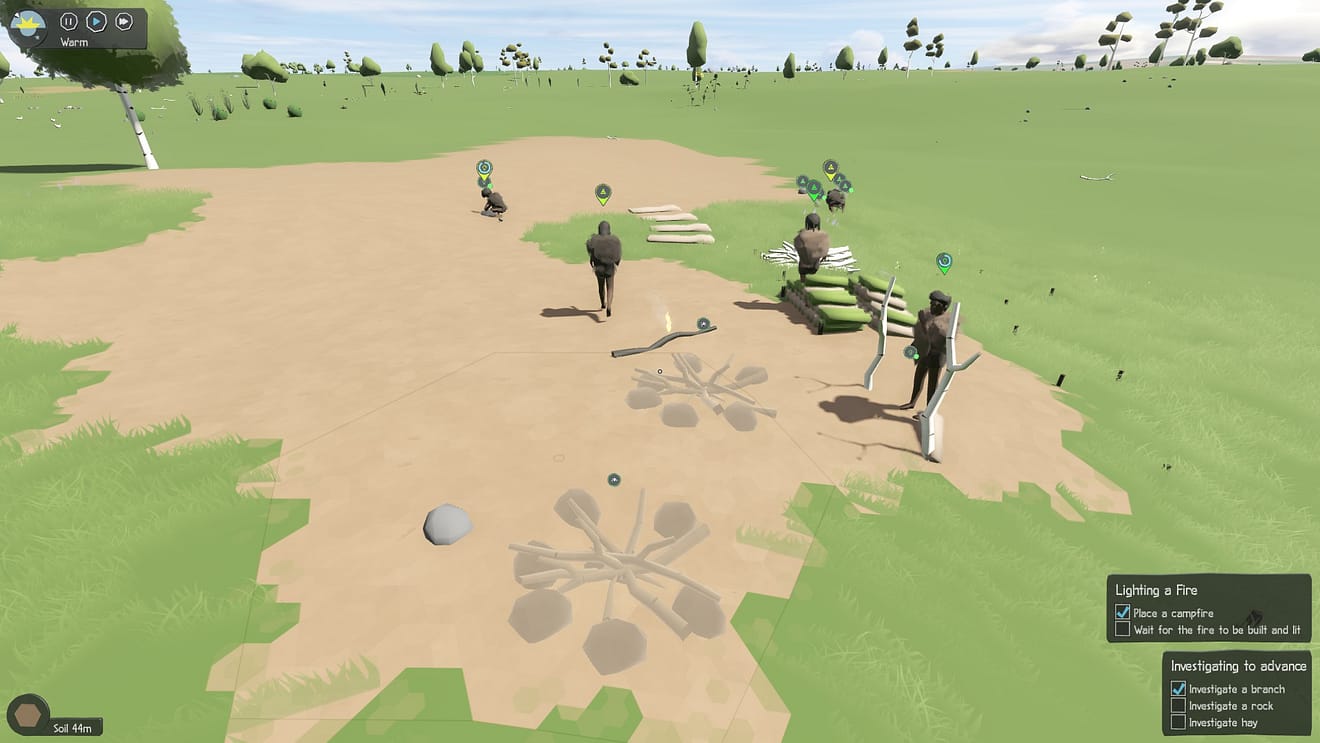
During a long, interactive tutorial, Sapiens teaches the player some quirkier mechanics. Colonists research things by doing them, all in an organic, immersive way. There’s no research button tree in this game; it’s all done on the go. The animations of the little people take me back to Lionhead Studios and Black and White, although it’s not really a good game. The entire world is procedurally generated, with visuals that are pretty nice to look at. They could be better, but the art style suits the game well. The building mechanics are entirely open-ended, allowing for endless customization.
It’s an Early Access game, and as these things go, it’s an unpolished gem. I’ve run into several bugs, and the nature of the world rendering makes for some optimization issues. However, Dave built the game engine for Sapiens from scratch, so some teething troubles are standard. Overall, I’m impressed by how solid the game engine is, although it’s an incomplete package. Even if it takes a long time to get anything going, I’ve grown attached to my little tribe’s people. It is oddly captivating to watch them carry out tasks, pick up objects, and build their homes. There’s a decent amount of mod support through Steam Workshop, and to my surprise, it plays well on the Steam Deck, another tick in its favor.
The potential for Sapiens is enormous. While Sapiens missed my Best of Early Access list this year, it’s an enjoyable and immersive experience. So if you’re in the mood for something new and are willing to be patient, Sapiens might be the game to try.
Isles of Etherion
Sometimes you don’t give a rat’s behind how buggy a game is or how poorly it glitches out as long as you’re having fun. Games don’t have to be perfect to be enjoyable. Of course, it’s better if there are as few bugs as possible, but I’m also a realist. I’ve written a fair few articles this year about deeply flawed games and how I keep getting myself into them. Fallout 4, Skyrim, Biomutant, Watchdogs Legion, Pokemon Sword/Shield, and Elex are just a few examples off the top of my head. They’ve all got significant problems, yet I’ve enjoyed them all in different ways.
I’ve been focusing heavily on the indie gaming industry for a few years now. One of my favorite things about these games is the sheer variety of what to expect. What drew me to Isles of Etherion was the art style. It’s an alien world of floating islands, airships, and demonic creatures. The work of a single developer, Luna Orion, has been working hard since its launch to improve the game. Thanks to them this year for providing me with a pre-release code to check out the game and for the great conversations!
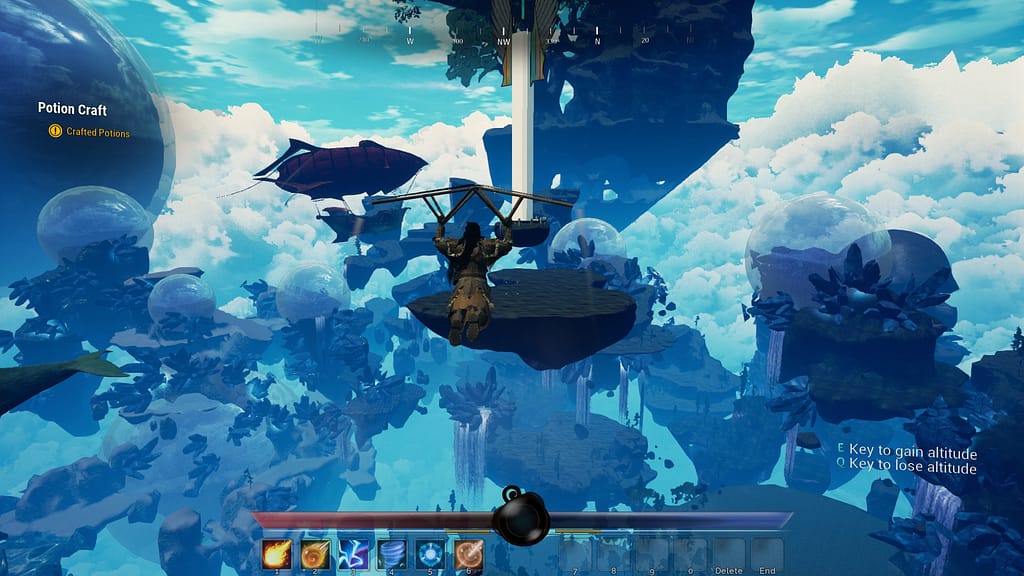
In my impressions review, I found Isles of Etherion ambitious but incredibly rough for its launch state. With the somewhat unique world setting, voxel destructible terrain, and excellent magic systems, there’s a great framework for a sandbox, open-world experience. Unfortunately, while all this sounds fun, it’s held back by rough optimization, texture pop-in, buggy animations, and enemy AI that breaks more than it works.
Despite these issues at launch, the developer Lucas has significantly improved the game. For starters, it’s considerably smaller on the hard drive, which is always a plus, and he’s made significant optimization patches, too, smoothing out the earlier portions of the game and adding new features to aid the player. While the bugs are still present, loading times are much smoother, and it’s maintaining a better framerate even on higher settings. Before, my laptop could barely hit 30FPS on the lowest settings, providing me with a second heater during the cold winter nights. Now I can increase the settings while maintaining that 30FPS rate. It’s a slight improvement, but it’s a start.
Isles of Etherion is in a weird place for me. On the one hand, it’s an early-alpha game with plenty of promise, but you may want to wait for more patches before trying it out. On the other hand, it’s a problematic recommendation based on performance, but it’s an exciting game all the same. The improvements in the three months since launch have been impressive, so I’m excited to see how it develops into 2023. If you’re in the mood for a janky open-world game and are willing to be patient with performance.
Warlord: Britannia
I love strategy games. I love historical games. When a game comes around that allows me to explore my inner Roman? You can bet I’ll be all over that.
It’s a shame there aren’t many games set in the Roman era. The only recent example besides this one I can think of was Expeditions: Rome, a CRPG launched at the beginning of this year. While it’s been slim pickings for a Roman strategy game fan, both games are solid additions to the strategy genre. I’ll be discussing Expeditions: Rome in the next episode, but for now, I’ll return to this happy conquest of barbarian Britain.
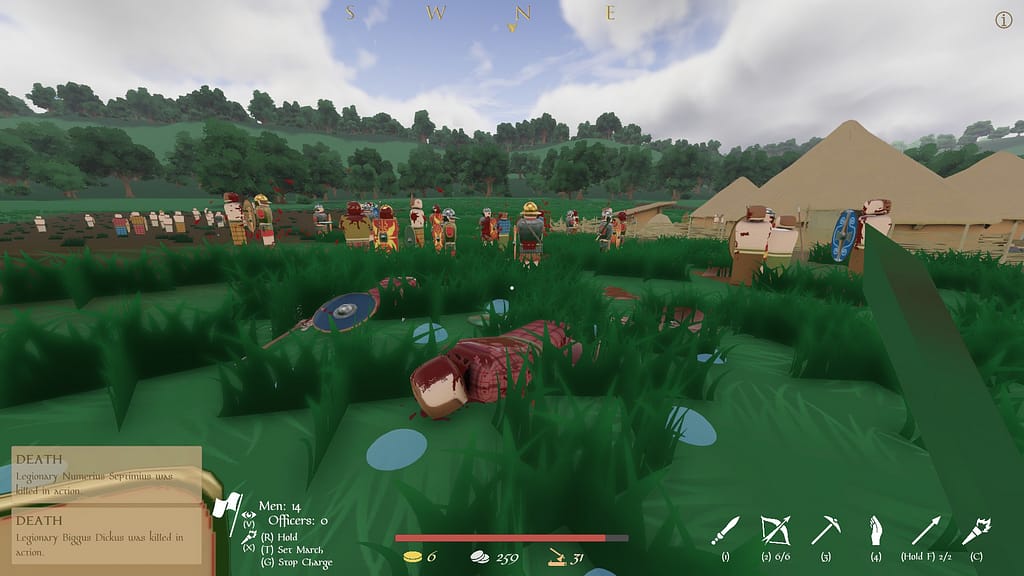
Warlord: Britannia might be one of the most unique titles I’ve played in 2022. Combining an open world with accessible base building and real-time combat, it tasks the player with conquering Britain with the might of the Roman legion. Battles are like miniature Total War engagements, relying on formations and discipline to overcome the superior numbers of the Celtic tribes. It baffles me that people have yet to be able to replicate the Total War experience after twenty years. With Creative Assembly focusing on the Warhammer series, historical Total War games feel like a lifetime ago. I hope we’ll one day see another installment in that franchise.
The interface and performance could be slightly better in this one, and I found the early game challenging. Tasked with an enormous challenge to pacify Britain, the depth of Roman logistics is quite impressive, and the player can use formations and diplomacy to further his goals. However, resources are difficult to come by, so the player must marshal his finances effectively to survive. It’s quite a moral challenge, too: by razing pesky barbarian towns to the ground, you gain significant rewards, but you’ll piss off the tribes that way. It’s a precarious balance, but sometimes it’s better to be a cold-hearted bastard than a kind soul.
Despite the UI issues I’ve experienced, this is a solid debut game by the developer. With its depth, unique playstyle, and low price tag,
Devil Spire
The final game I’m featuring today is an unfortunate casualty. I could say the same about many this year because I had to make some hard choices for what gets covered. Devil Spire might not have made my Top 10 list this year, but it deserves much more attention.
A retro-style dungeon crawler, Devil Spire has enjoyed modest success. The work of solo developer Ithrio, I wanted to show him and his project the respect they deserve. He’s working on a new project, but this was a fantastic experience. I feel sad about not being able to rank it higher.
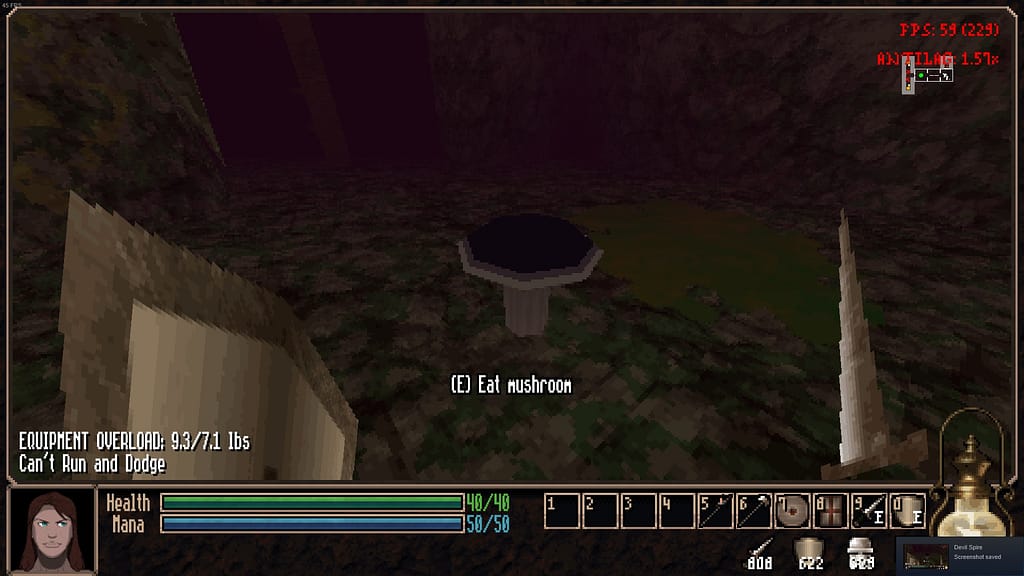
Old-school games bring so much nostalgia to us, don’t they? In an era where gaming giants are stuck in a familiar trend, players often return to older games for a taste of aged wine. This retro genre is ever more popular in 2022, fuelled by an indie resurgence to tempt those who want ‘to return to the old days of gaming. I just love the variety of games available to us. As I mentioned in my impressions review, Devil Spire does this just right. You can check out that review by clicking on the link below, so I won’t go into detail here.
Devil Spire ticked all the boxes for me. While the game is challenging, it’s manageable, too. The dungeon crawling experience involves slow exploration, clunky combat, many things to interact with, and enemies hit hard. If you pick the wrong class or weapon, it’s straightforward to reach that street called ‘You’re Dead, Pal.” It’s a roguelike, so losing isn’t the end of the world. Unlocks for future runs are common in the genre, and Devil Spire provides a wide range of abilities, powerups, and weapons for the player.
It’s not a perfect experience: I wish the difficulty spikes were communicated better; stumbling into a death trap without warning resulted in me swearing at my screen more than once, and the controls take time to get used to. However, I’ve had a great time in Devil Spire despite these minor nitpicks. The graphical design is excellent, it’s easy to learn how to play, and the mechanics are surprisingly deep. Devil Spire is now complete: Ithrio has moved on to new things. He’s won himself a fan in me, and I can’t wait to see what he comes up with next.
Conclusion
That completes the third episode of my GOTY series! So join us next time when I announce the Honorable Mentions. It’ll be one of the longest articles I’ve written this year, and I’m excited to show you more.
In the meantime, have fun and stay safe!